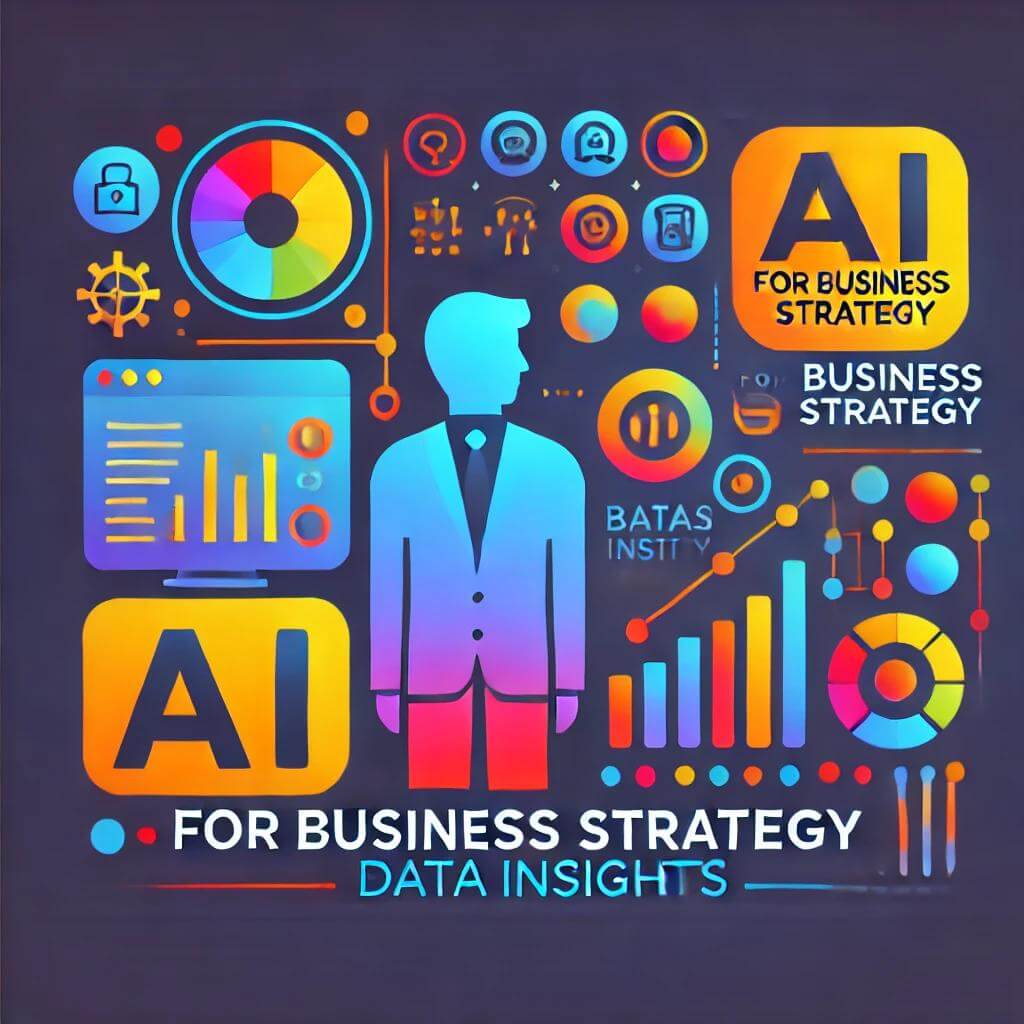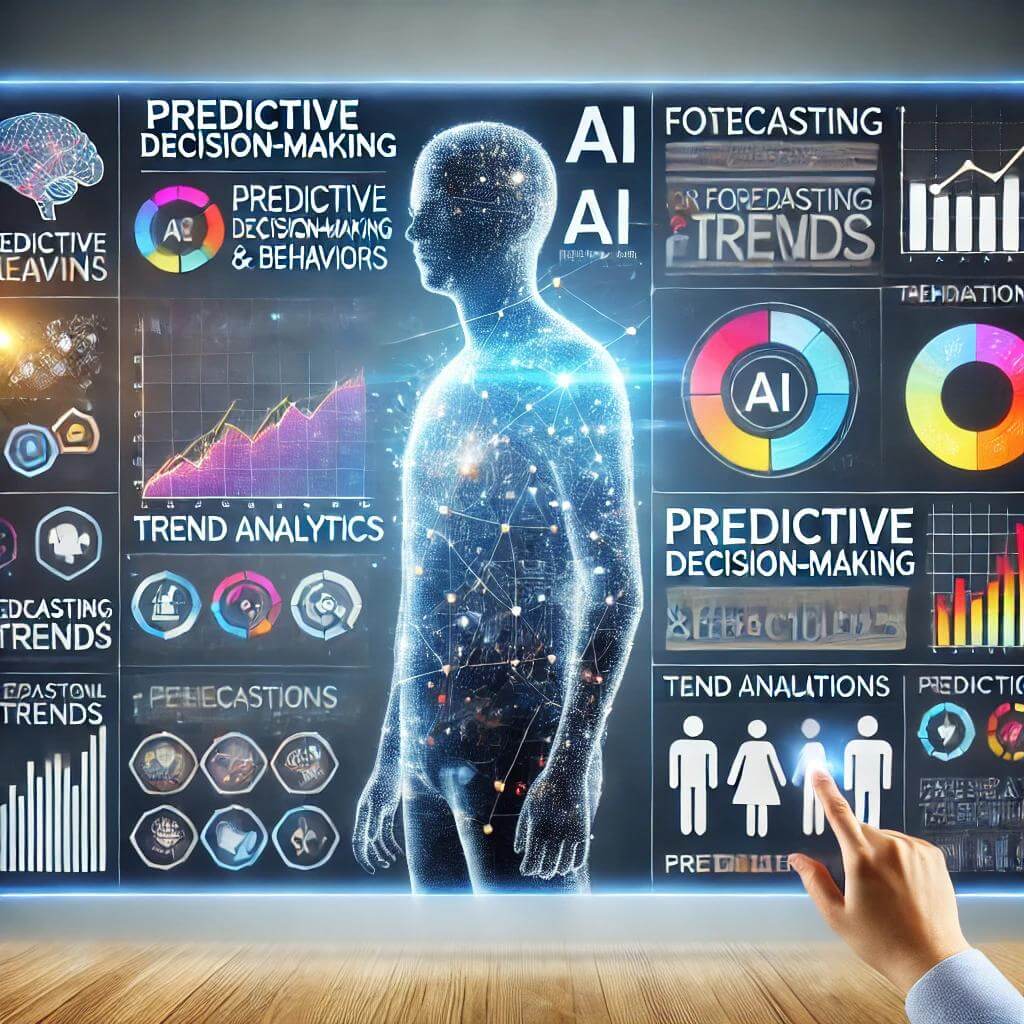How AI Transforms Strategic Business Decisions
In today’s competitive landscape, Artificial Intelligence (AI) has become a powerful tool for businesses looking to make smarter, more strategic decisions. With AI-driven insights, companies can analyze vast amounts of data, understand market trends, and anticipate customer needs. This article explores how AI is reshaping strategic decision-making and providing companies with a significant edge.
The Role of AI in Strategic Decision-Making
Incorporating AI into strategic business decisions allows organizations to act based on data-driven insights rather than assumptions. AI technologies like predictive analytics, machine learning, and natural language processing help businesses understand customer behavior, forecast trends, and optimize operations.
Predictive Analytics: Forecasting the Future
One of the most impactful uses of AI in business strategy is predictive analytics. This technology enables businesses to predict future outcomes by analyzing historical data, helping them make decisions with confidence.
How Predictive Analytics Works
AI algorithms analyze data patterns to identify potential future events. This is particularly useful in industries where customer demand fluctuates, such as retail, finance, and healthcare. Predictive analytics provides insights that allow companies to adjust their strategies proactively.
| Feature | Benefit |
|---|---|
| Real-Time Data Collection | Ensures forecasts are up-to-date |
| Pattern Recognition | Helps identify emerging trends |
| Continuous Learning | Increases prediction accuracy over time |
Customer Insights and Personalization
Understanding customer behavior is key to building effective strategies. AI allows companies to go beyond basic demographics and understand individual preferences, buying habits, and engagement patterns.
The Impact of Personalization
Personalized marketing strategies, powered by AI, enhance the customer experience. When companies know what their customers want, they can deliver targeted messages, product recommendations, and content tailored to individual needs, increasing customer loyalty and satisfaction.
- Targeted Advertising: AI algorithms analyze user data to create personalized ads.
- Product Recommendations: Platforms like Amazon use AI to recommend products based on past purchases and preferences.
- Customer Retention: By analyzing customer behavior, businesses can identify high-risk customers and offer incentives to retain them.
Operational Efficiency and Cost Reduction
AI enables companies to optimize their operations, reducing costs and improving efficiency. From automating repetitive tasks to optimizing supply chains, AI helps businesses make strategic decisions that drive productivity.
Examples of AI-Driven Operational Efficiency
- Automated Customer Support: AI chatbots provide quick and accurate responses, allowing support teams to focus on more complex issues.
- Inventory Management: AI analyzes stock levels and predicts demand, helping companies avoid overstocking or stockouts.
- Process Optimization: Manufacturing companies use AI to monitor machinery, predict maintenance needs, and prevent downtime.
| AI Application | Operational Benefit |
|---|---|
| Automated Customer Support | Reduces support costs and response time |
| Inventory Management | Improves stock levels and reduces waste |
| Process Optimization | Prevents costly downtime and delays |
AI in Market Trend Analysis
AI allows companies to stay ahead of market trends by analyzing real-time data from multiple sources. This helps businesses adjust their strategies according to shifts in customer preferences, economic changes, or competitor activities.
Key Benefits of Market Trend Analysis
- Anticipating Demand: AI can forecast demand changes, allowing businesses to prepare for high or low seasons.
- Competitive Analysis: AI monitors competitors’ actions, helping companies react to market changes quickly.
- Economic Forecasting: Businesses use AI to predict economic shifts that might impact their industry.
Enhancing Risk Management with AI
Risk management is a crucial aspect of strategic decision-making, especially in industries like finance, insurance, and healthcare. AI helps companies identify and mitigate risks more effectively.
How AI Improves Risk Assessment
AI systems assess risk by analyzing a variety of data sources, including market trends, historical data, and even social media sentiment. This allows businesses to make well-informed decisions about investments, partnerships, and expansions.
- Fraud Detection: AI identifies patterns in transactions to detect potential fraud.
- Investment Risk Assessment: AI analyzes financial markets and provides insights into risk factors.
- Regulatory Compliance: AI ensures that companies adhere to compliance standards, reducing legal risks.
Challenges of Implementing AI in Strategic Decisions
While AI offers many benefits, there are challenges to consider when integrating it into business strategy.
Data Quality and Privacy Concerns
AI’s effectiveness depends on the quality of data it processes. If data is incomplete or inaccurate, AI-generated insights may be unreliable. Additionally, businesses must ensure they handle customer data responsibly, adhering to privacy regulations like GDPR.
Dependence on AI and Human Oversight
Over-reliance on AI could result in a lack of human intuition in decision-making. It’s essential to balance AI-driven insights with human judgment to avoid purely data-dependent strategies.
Conclusion
AI is transforming the way businesses make strategic decisions by providing actionable insights, improving efficiency, and reducing risk. By adopting AI technologies like predictive analytics, customer personalization, and trend analysis, companies can stay competitive and make decisions that drive long-term success. While challenges exist, the benefits of integrating AI into strategic decision-making are clear, making it an invaluable asset for forward-thinking businesses.


Post Comment